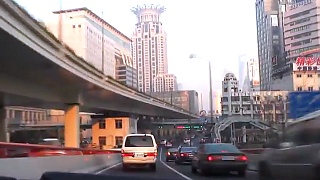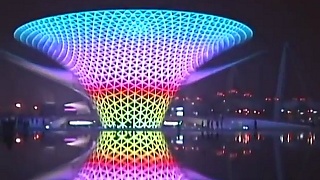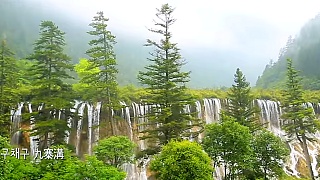By JiaLing River, BinJiang road ..
[640],shadow=true,start=,stop=ShangQing Temple to XiaoLongKan ...
Chongqing, often referred to as the 'Mountain City', is a vibrant metropolis located in southwestern China. It's a fascinating destination for tourists, offering a unique blend of natural beauty, rich cultural heritage, and modern urban development. Here's a guide for tourists visiting Chongqing:
City Highlights:
Geographical Features: Chongqing is renowned for its dramatic landscape, characterized by steep hills, towering skyscrapers, and the confluence of the Yangtze and Jialing rivers. The city's hilly terrain gives it a distinctive skyline and adds to its scenic beauty.
Three Gorges: As a gateway to the Three Gorges region, Chongqing serves as the starting point for Yangtze River cruises. Tourists can embark on cruises that traverse the picturesque Three Gorges, including Qutang Gorge, Wu Gorge, and Xiling Gorge, while experiencing the breathtaking scenery along the way.
Cultural Heritage: Chongqing boasts a rich cultural heritage with historical sites, temples, and museums that showcase its long history and cultural diversity. Must-visit attractions include the Dazu Rock Carvings, a UNESCO World Heritage site featuring intricate Buddhist sculptures, and the Three Gorges Museum, which offers insights into the region's natural and cultural history.
Culinary Delights: Chongqing is famous for its spicy Sichuan cuisine, particularly hotpot, a popular dish enjoyed by locals and visitors alike. Tourists can sample authentic Chongqing hotpot at local restaurants and street food stalls, savoring the bold flavors and fiery spices that characterize the region's cuisine.
Attractions and Activities:
Hongya Cave: This iconic riverside complex in downtown Chongqing features traditional architecture, colorful lights, and a bustling marketplace. Visitors can explore the labyrinthine alleyways, shop for souvenirs, and enjoy panoramic views of the Yangtze River from the elevated walkways.
Ciqikou Ancient Town: Nestled along the banks of the Jialing River, Ciqikou Ancient Town is a well-preserved historic district known for its Ming and Qing Dynasty architecture, charming tea houses, and artisan shops. It's a great place to stroll, shop for handicrafts, and sample local snacks.
Jiefangbei Pedestrian Street: As the commercial heart of Chongqing, Jiefangbei Pedestrian Street is a bustling shopping and entertainment district lined with shops, malls, theaters, and restaurants. It's a vibrant area to explore, especially at night when the neon lights illuminate the streets.
Wulong Karst Landscape: Located about 3 hours' drive from Chongqing, the Wulong Karst Landscape is a UNESCO World Heritage site renowned for its stunning karst formations, natural bridges, and caves. Visitors can hike, explore underground caverns, and admire the breathtaking scenery of this geological wonderland.
Practical Tips:
Transportation: Getting around Chongqing is convenient with its extensive public transportation network, including buses, taxis, and the Chongqing Metro. Cable cars and escalators also provide access to the city's hilly terrain.
Weather: Chongqing has a subtropical climate with hot summers and mild winters. Summer temperatures can be sweltering, so it's advisable to dress accordingly and stay hydrated.
Language: Mandarin Chinese is the official language spoken in Chongqing, although the local Chongqing dialect is also prevalent. It's helpful to carry a phrasebook or translator app, especially if you're not fluent in Mandarin.
Chongqing offers a captivating blend of natural beauty, cultural heritage, and modern urban life, making it an exciting destination for tourists seeking to explore the diverse landscapes and rich cultural heritage of southwestern China.

 ChongQing 重庆 night drive
ChongQing 重庆 night drive



























